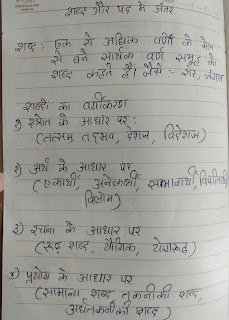Social Science History Chapter 1: French Revolution (Summary of the topic taught as on 15/4/2021)
Topics Covered:
France Abolishes Monarchy and Becomes a Republic
Reign of Terror
A Directory Rules France
Learning Objectives:
Students will be able to list the events of abolishment of Monarchy.
Students will be able to identify the impact of revolutionary war on the French Society.
Is able to identify the role of Jacobins Club during the French Revolution.
Is able to identify the Reign of Terror.
Will be able to list the reforms introduced by Maximilian Robespierre to bring equality in French Society.
Will be able to list the events that paved way for the rise of a military dictator Napoleon Bonaparte.
Notes:
- Louis XVI has signed the Constitution, but he entered into secret negotiations with the king of Prussia.
- Rulers of other neighboring countries too were worried by the developments in France and made plans to send troops to stop the revolutionary events taking place.
- Before this could happen, the National Assembly voted in April 1792 to declare war against Prussia and Austria.
- Thousands of Volunteers joined the army from the provinces to join the army.
- People saw this war as a war of the people against kings and aristocracies all over Europe.
- The patriotic song Marseillaise, composed by the poet Roget de L'Isle was sung for the first time by volunteers from Marseilles as they marched into Paris which is now the national anthem of France.
- The revolutionary wars brought losses and economic difficulties to the people.
- The Constitution of 1791 gave political rights only to the richer sections of society.
- Political clubs were established by the people who wished to discuss government policies and plan their own forms of action.
- The most successful of these clubs was that of the Jacobins.
- The members of the Jacobin club belonged mainly to the less prosperous sections of the society such as small shopkeepers, artisans as well as servants and daily wage workers. Their Leader was Maximilian Robespierre.
- Jacobins start wearing long striped trousers and came to be known as the sans culottes, literally meaning those without Knee breeches.
- In the summer of 1792 the Jacobins planned a revolt of a large number of the people of Paris who were angered by the short supplies and high prices of food.
- On August 10, they stormed the Palace of the Tuileries, massacred the king's guards and held the king himself as hostage for several hours.
- Later the Assembly voted to imprison the royal family. Elections were held.
- From now on all men of 21 years and above regardless of wealth, got the right to vote.
- The newly elected assembly was called the Convention.
- On 21st September 1792, it abolished the monarchy and declared France a republic.
- Louis XVI was sentenced to death by a court on the charge of treason.
- The queen Marie Antoinette met with the same fate shortly after.
THE REIGN OF TERROR
- The period from 1793 to 1794 is referred to as the Reign of Terror as Robespierre followed a policy of severe control and punishment.
- All his enemies, Ex-nobles, clergy, members of other political parties, even members of his own party who did not agree with his methods were arrested, imprisoned and guillotined.
- Robespierre's government issued laws placing a maximum ceiling on wages and prices.
- Meat and Bread were rationed
- Peasants were forced to transport their grain to the cities and sell it at prices fixed by the government.
- The use of more expensive white flour was forbidden and all citizens were required to eat the equality bread, a loaf made of whole wheat.
- Instead of the traditional Monsieur (Sir) and Madame (Madam) all French men and women were addressed as Citoyen and Citoyenne (Citizen)
- Churches were shut down and their buildings converted into barracks and offices.
- Robespierre pursued his policies so harshly that even his supporters began to demand moderation.
- Finally, he was convicted by a court in July 1794, arrested and on the next day sent to the guillotine. (The guillotine is a device consisting of two poles and a blade with which a person is beheaded. It was named after Dr. Guillotin who invented it.)
A DIRECTORY RULES FRANCE
- A new constitution was introduced which denied the vote to non propertied sections of society.
- It provided for two elected legislative councils which then appointed a Directory, an executive made up of five members.
- The Directors often clashed with the legislative councils, who then sought to dismiss them.
- The political instability of the Directory paved the way for the rise of a military dictator, Napoleon Bonaparte.
CONTENT ANALYSIS
1. State the events of abolishment of Monarchy. (Tb Pg no. 14) (05 Marks)
2. What was the impact of revolutionary war on the French Society. (Tb pg.no 14) (05 Marks)
3. What was the role of Jacobins during the French Revolution OR
Explain the role of Jacobins in French Revolution. (Tb pg no. 14) (03 Marks)
4. What was the convention? (Tb pg no. 15) (01 Marks)
5. Why is the period of 1793 to 1794 is referred to as the Reign of Terror. (Tb Pg no. 16) (05 Marks)
OR Who was Robespierre? Which laws were introduced by him to bring equality? (Tb Pg no. 16)
6. State the events which paved way for the rise of a military dictator Napoleon Bonaparte. (Tb pg no.17) (03 Marks)
4.

